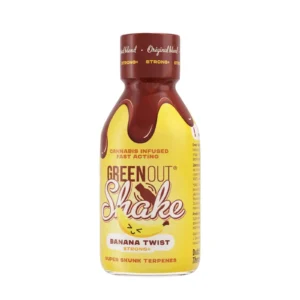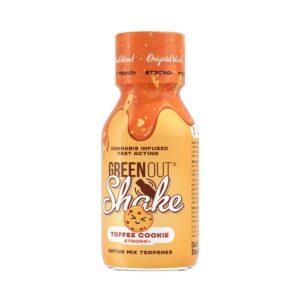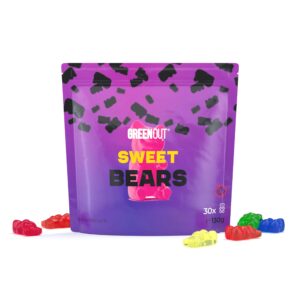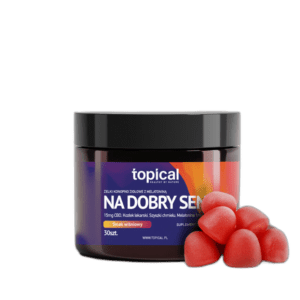Like THC many years ago, CBD is becoming synonymous with hemp. With available research and an ever-expanding consumer-based CBD market, people are becoming increasingly aware of the potential of CBD, hemp and the benefits of both.
However, while CBD is one of the best known and widely recognized cannabinoids, it is not the only beneficial ingredient synthesized from the Cannabis sativa plant. You may be surprised to learn that CBD works even better in combination with other cannabinoids.
One of these "cooperative" cannabis compounds is gaining popularity with the availability of research. That cannabinoid is CBG. A comparative analysis of CBD vs CBG shows similar properties of both cannabinoids. However, CBG also has several unique characteristics that make it as desirable as hemp CBD extracts.
But before we get into the comparisons and contrasts between CBD and CBG, here's a quick overview of what exactly these two cannabinoids are.
What is CBD?
CBD, or cannabidiol, is one of the main compounds found in hemp. It makes up about 10% (or more) of the chemical composition of high-quality hemp. It is a non-psychoactive phytonutrient, meaning that it is produced by the plant and does not produce the feelings of "high" or euphoria that are commonly associated with another compound called THC, or tetrahydrocanナビnol (Tetrahydrocannabinol). THC is sometimes found in CBD products, but only in small amounts, up to the legal limit of 0.3%. Labels of CBD products will always indicate whether they contain THC.
CBD molecules interact with our endocannabinoid system (ECS), binding mainly to CB2 cannabinoid receptors. These receptors are found in the peripheral nervous system, but are also found in muscles, immune cells, skin and other organs. This built-in biological system in our bodies is responsible for CBD's beneficial effects on health and well-being, and is creating demand for the variety of CBD products that are now available.
What is CBG?
Cannabigerol (CBG) is another non-psychoactive phytonutrient found in hemp. This unique compound plays a central role in the development of CBD and other known cannabinoids.
CBG is often referred to as the "mother of cannabinoids" because it is the first phytonutrient synthesized from hemp to convert into other plant-derived cannabinoids.
This compound begins as a 2-carboxylic acid called cannabigerolic acid (CBGA). As cannabis matures, this compound begins to transform into three others: tetrahydrocannabinolic acid (THCA), cannabidiolic acid (CBDA) and cannabichromenoic acid (CBCA).
After conversion, only a small amount of CBGA remains - less than one percent. And when cannabis begins the decarboxylation process, all of these compounds lose their carboxyl group and become the cannabinoids we commonly know, including THC, CBD, CBC and CBG.
Since the mature hemp plant contains small amounts of CBG, its extraction requires much more effort compared to CBD. Growers would either have to harvest the hemp before it is fully mature, or grow enough plants to obtain a significant amount of CBG during the extraction process.
Due to the lower availability of CBG, research on this particular cannabinoid is limited. However, like CBD, CBG also works by binding to receptors in the endocannabinoid system. Unlike CBD, CBG can bind to both CB1 and CB2 receptors, not just one of them.
CBG vs CBD: A Comparison
Both CBG and CBD are non-psychoactive cannabinoids found in hemp sativa (Cannabis sativa), but they also have unique properties and differ in their chemical properties:
| Property | CBG | CBD |
|---|---|---|
| Non-psychoactive | + | + |
| Extracted from hemp | + | + |
| Binds to cannabinoid receptors | + | + |
| Abundant amounts in hemp | + | + |
| Works with the endocannabinoid system (ECS) | + | + |
| It offers beneficial properties | + | + |
| Converts into other cannabinoids | + | – |
| Occurs only in the early growth cycle of the cannabis plant | + | – |
CBG vs CBD: Which offers better benefits?
We mentioned earlier that CBD molecules normally communicate with CB2 cannabinoid receptors, and these receptors connect to the peripheral nervous system (PNS). The PNS reaches various muscles, limbs, skin and other biological systems, including the immune system.
In addition to CB2 receptors, CBG also attaches to CB1 receptors, which connect to our central nervous system (CNS), which includes the brain and spinal cord. Rather than wondering which benefits are more important, it's better to determine which cannabinoid suits your needs by acting on the areas you're most interested in.
CBD and CBG, individually offer beneficial properties. They also work synergistically to enhance each other's effects, which is why most CBD oils labeled as broad-spectrum or full-spectrum contain both cannabinoids - enabling the so-called ambient effect.
Remember that CBD isolation from hemp is much more common than CBG isolation - this means that research on CBD is easier due to its greater availability than CBG. This doesn't mean that CBG is less useful, but studies confirming its beneficial effects are less frequent.
CBG vs CBD in the fight against stress: Which works better?
According to a recent study, combating stress with CBD is the main reason why people are reaching for CBD oils, or at least interested in this option. CBD's properties are very appealing, especially when combined with an overall stress management strategy that includes meditation, exercise, healthy sleep and other relaxation techniques.
However, many do not know that CBG can also play an important role.
When it comes to using CBG and CBD to combat stress, the combination of the two cannabinoids can enhance the effects of CBD in alleviating daily stress through a synergistic effect.
Nevertheless, there is no conclusive evidence that one cannabinoid works better than another in terms of relieving stress and promoting a calmer mood.
CBG vs CBD in the fight against insomnia: Which works better?
Nearly 70% Americans admit that they don't get enough sleep, which is crucial to our health. Using CBD for sleep, especially as part of an evening relaxation ritual, is becoming an increasingly popular alternative to conventional methods.
But does CBD cause drowsiness? Technically, no, taken in normal doses. CBD works indirectly and best when combined with other substances, such as melatonin. CBD in combination with THC can cause mild drowsiness due to the presence of THC, but only some CBD products contain a small amount of THC, namely those labeled "full-spectrum." When used as directed, CBD products usually do not cause drowsiness.
So why do people associate CBD use with better sleep? Because CBD can help achieve a state of relaxation and calm, and with promising reviews, people feel more confident using CBD products to maintain a healthy and regular sleep cycle. These reviews provide us with anecdotal evidence and help us understand consumer reactions to certain products, such as sleep-enhancing CBD products.
CBG vs CBD for pain management: Which works better?
In the study, nearly 40% people surveyed admitted that CBD was effective in alleviating minor discomforts caused by intense exercise.
The muscle groups and joints we regularly exercise during workouts are part of our peripheral nervous system. Since CBD molecules mainly communicate with CB2 receptors connected to this system, CBD can be helpful.
One of the biggest advantages of using CBD for muscle pain is that both internal and external methods can be used. In particular, topical CBD formulations, which also contain proven painkillers such as menthol, can be applied topically for targeted relief.
You can also take CBD orally via CBD tinctures, soft capsules or gels. Regular use of these internal methods in the morning or evening, or even at both times, can help reduce delayed-onset muscle soreness, which is common after physical activity.
With the combination of CBG and CBD, found in many broad or full spectrum CBD products, you get two beneficial ingredients. It's hard to say unequivocally that CBD or CBG is better, but in combination they can be more effective.
Which is better for you?
The effects of CBD, CBG and other cannabinoids can vary depending on our physique, lifestyle and other physical characteristics. Since these two particular cannabinoids work better together than separately, when comparing CBG to CBD, it's better to determine which one better suits your needs. Fortunately, the decision may be a no-brainer, as a combination of the two may be the best option. Many CBD products contain both ingredients in their formulas.
Both occur naturally in hemp and share some common characteristics. However, they still differ in composition and offer unique benefits based on limited research. If you'd like to learn more about the potential benefits of CBG, CBC and other cannabinoids, check out our educational blogs for more information on cannabinoids other than CBD.
The more you know about the differences between CBG and CBD, the more confident you will feel when buying CBD or hemp-based products. You can then choose the CBD products that best suit your needs and help you achieve your personal health goals.








